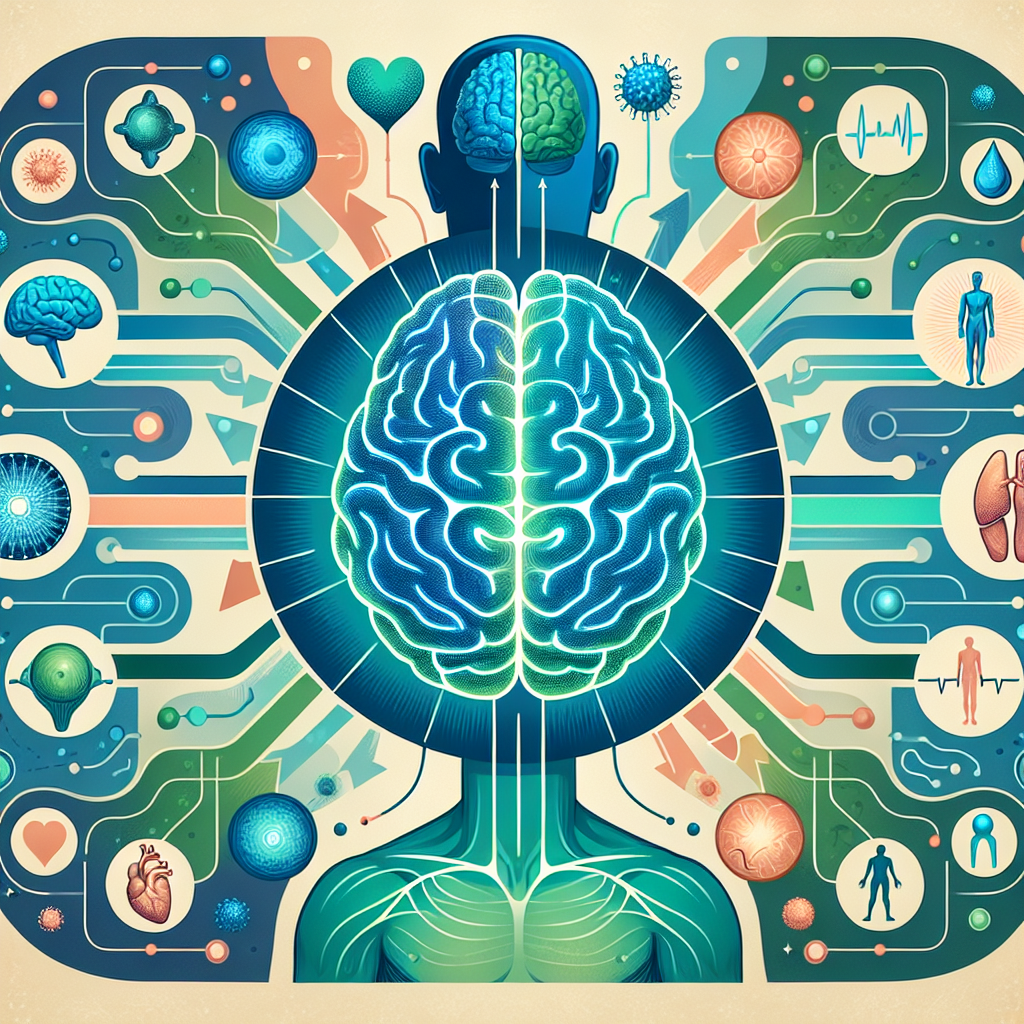Have you ever felt stressed and noticed your back aching, or perhaps you faced a big deadline and your stomach began to churn? These common experiences highlight the intricate relationship between our mental and physical states, often referred to as the “brain-body connection.” Understanding this connection can empower us to take charge of our well-being, leading to a healthier, balanced life.
What is the Brain-Body Connection?
The brain-body connection refers to the ways in which our mental and emotional states affect our physical health. It’s a fascinating topic that has garnered significant attention in the fields of psychology, neuroscience, and medicine. Researchers have discovered that our thoughts, feelings, and experiences can trigger various physiological responses in the body.
Mental health conditions like anxiety, depression, and chronic stress can lead to physical symptoms. Conversely, physical health issues can also affect our emotional well-being. This bidirectional relationship means that maintaining balance in both areas is crucial for overall health.
The Science Behind the Connection
Neuroscientific research has demonstrated that the brain and body communicate constantly through biochemical signals. Stress hormones like cortisol can directly affect our immune response, cardiovascular health, and even digestion. For example, prolonged stress can lead to chronic conditions such as hypertension and diabetes.
The Role of Hormones
When we experience stress, the brain activates the hypothalamic-pituitary-adrenal (HPA) axis, leading to the release of stress hormones. High levels of these hormones can disrupt bodily functions, which could manifest as:
- Increased heart rate
- Digestive issues
- Weakened immune response
- Sleep disturbances
Psychosomatic Symptoms
Psychosomatic symptoms occur when psychological distress expresses itself through physical pain or illness. Conditions like tension headaches, irritable bowel syndrome (IBS), and fibromyalgia are prime examples. Recognizing the link between our mental state and physical symptoms is vital in seeking appropriate treatment.
The Impact of Mental Health on Physical Well-Being
Anxiety and Its Effects
Anxiety is one of the most prevalent mental health conditions. It can lead to various physical symptoms, such as muscle tension, headaches, and gastrointestinal issues. Oftentimes, anxiety manifests as a heightened state of alertness, causing the body to go into fight-or-flight mode, which can be exhausting over time.
Stress and its Consequences
Chronic stress can have severe repercussions on physical health. Conditions linked to chronic stress include:
- Cardiovascular diseases like heart attack and stroke
- Autoimmune disorders
- Weight gain or loss
Depression and Its Physical Impact
Depression doesn’t only affect our thoughts and emotions; it can also take a toll on our physical health. Research indicates that individuals dealing with depression may experience:
- Fatigue
- Changes in appetite
- Long-term inflammation
Improving Mental Health for Better Physical Well-Being
Understanding the brain-body connection emphasizes the importance of taking care of your mental health. Here are some strategies that can help improve your mental well-being and, in turn, your physical health:
Exercise
Physical activity can significantly reduce symptoms of anxiety and depression. Exercise releases endorphins, which are natural mood lifters, and can also improve sleep quality and reduce stress.
Mindfulness and Meditation
Practicing mindfulness and meditation can help calm the mind, reduce stress levels, and improve overall mental health. These techniques have been shown to promote emotional resilience and enhance quality of life.
Healthy Eating
Diet can have a profound effect on mental health. Consuming a balanced diet rich in nutrients can improve mood and cognitive function. Always aim for a variety of fruits, vegetables, whole grains, and healthy fats.
Social Connections
Maintaining strong social connections has been shown to enhance mental well-being. Spending time with loved ones or engaging in community activities can provide emotional support and elevate mood.
Conclusion
The brain-body connection is a powerful reminder that our mental and physical health are intertwined. Understanding how our mental state can impact our physical well-being enables us to take proactive steps towards a healthier and more balanced life. By prioritizing mental health through exercise, mindfulness, proper nutrition, and social connections, we can foster not only a happier mind but also a healthier body.
FAQs
Q1: Can mental health issues really cause physical problems?
A1: Yes, mental health issues like anxiety, stress, and depression can manifest in physical symptoms such as pain and gastrointestinal problems.
Q2: What are some common physical symptoms of stress?
A2: Common physical symptoms of stress include headaches, muscle tension, fatigue, and digestive issues.
Q3: How can I improve my mental health?
A3: You can improve mental health through regular exercise, mindfulness practices, maintaining a balanced diet, and fostering social connections.
Q4: Is there a connection between diet and mental health?
A4: Yes, a healthy diet rich in nutrients can positively influence mood and cognitive function, thereby supporting better mental health.
